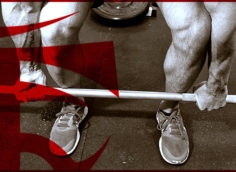Ever notice that some people in your gym are mainly there to walk on the treadmill? They do this even if the weather is nice. It's funny when you think about it: they got into their car and drove some place to walk.
Walking is great exercise, no doubt, even for hard and heavy lifters. It burns calories, helps with recovery, improves cognitive performance, and can even alleviate back pain. But does it matter where we walk? Turns out, this has been studied.
One study compared indoor and outdoor walking in terms of physiological and psychological responses. The study compared indoor treadmill walking to outdoor mountain hiking. Duration, total distance, and change in elevation were the same for both, though the downhill hiking was replaced by zero-incline treadmill walking since the treadmills couldn't produce a decline.
Researchers looked primarily at the rate of perceived exertion (RPE), a self-evaluation of how hard you're working on a 1-10 scale, and heart rate. While the treadmill walkers and the mountain hikers reported a very similar RPE, the hikers actually had heart rate values an average of 6 beats per minutes higher. In short, the hikers worked harder without realizing it.
Another study looked at how the brain activates in response to walking in an urban setting as compared to walking in the woods. They found that the areas of the brain most commonly associated with depression and anxiety showed significantly less neural activity in the woods than in the city. A nature walk seems to be a stress buster.
What these two studies tell us is that you'll burn more calories and give your heart a better workout, without even realizing it, by walking in nature. You'll even feel better psychologically and alleviate some anxiety.
Weather permitting, hop in the car and drive out to the woods, or at least some place with uneven terrain and a better view than the row of TVs at your gym.
- Bratman GN et al. Nature experience reduces rumination and subgenual prefrontal cortex activation. Proc Natl Acad Sci U S A. 2015 Jul 14;112(28):8567-72. PubMed.
- Niedermeier M et al. Affective responses in mountain hiking–A randomized crossover trial focusing on differences between indoor and outdoor activity. PLoS One. 2017 May 16;12(5):e0177719. PubMed.





